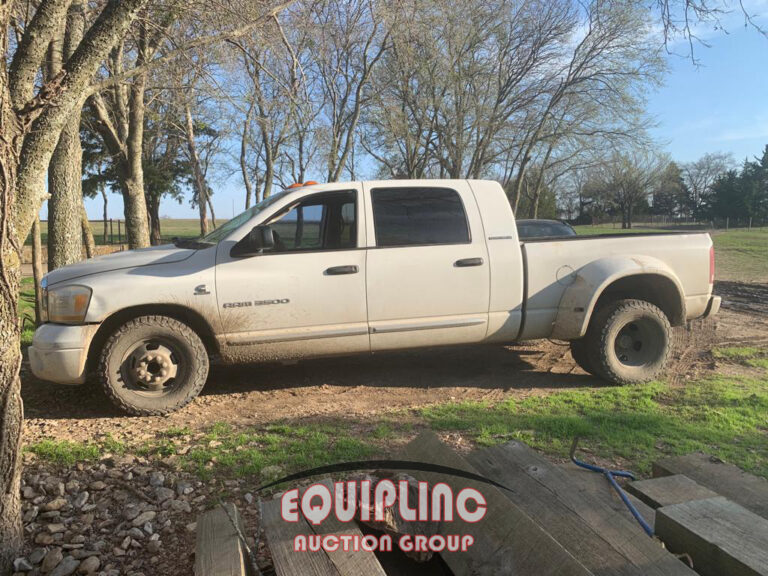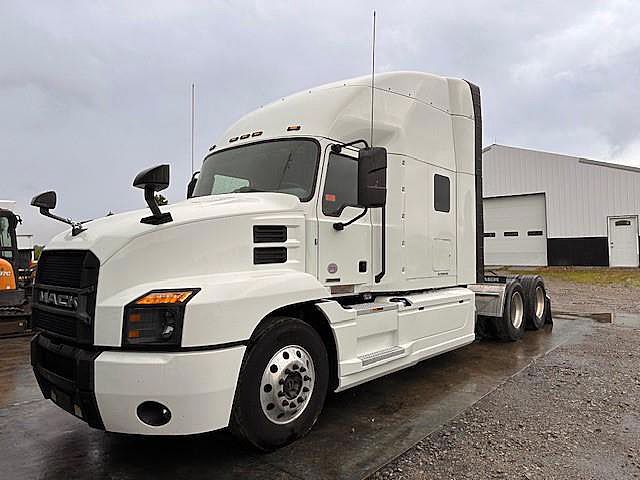Rolling into Opportunity: Your Comprehensive Guide to Used Food Trucks for Sale in Tampa

Rolling into Opportunity: Your Comprehensive Guide to Used Food Trucks for Sale in Tampa
Tampa, Florida, a city synonymous with sunshine, vibrant culture, and a burgeoning culinary scene, has become a hotbed for mobile gastronomy. From the historic brick streets of Ybor City to the bustling waterfront of Downtown and the eclectic charm of Seminole Heights, food trucks are an integral part of the local landscape, serving up everything from gourmet tacos and artisanal ice cream to classic comfort food and international delicacies. For aspiring chefs, seasoned restaurateurs looking to expand, or entrepreneurs seeking a slice of the lucrative food industry, investing in a food truck in Tampa presents an enticing proposition. And for many, the smart money is on a used food truck.
This comprehensive guide delves deep into the world of used food trucks for sale in Tampa, exploring why this dynamic city is the ideal location, the compelling advantages of opting for a pre-owned vehicle, a meticulous checklist for what to scrutinize before buying, where to find these mobile kitchens, and crucial steps to ensure a smooth transition from purchase to profit.
Tampa’s Thriving Food Truck Ecosystem: Why Here?
Before diving into the specifics of used trucks, it’s essential to understand why Tampa stands out as a prime location for mobile food businesses:
- Explosive Growth & Diverse Demographics: Tampa is one of the fastest-growing metropolitan areas in the U.S. Its population is diverse, comprising young professionals, families, retirees, and a steady stream of tourists, all seeking varied and exciting dining options.
- Year-Round Events & Festivals: Unlike many northern cities, Tampa enjoys a mild climate year-round, enabling a continuous calendar of outdoor events. Gasparilla, Super Bowl celebrations, concerts, festivals, farmer’s markets, university events (USF, UT), and weekly food truck rallies provide endless opportunities for mobile vendors.
- Supportive Local Regulations (Relatively): While regulations are ever-evolving and require diligent navigation (more on this later), Tampa and Hillsborough County have generally fostered an environment conducive to food truck operations, with designated zones, event permits, and a clear health inspection process.
- Breweries, Parks & Private Venues: The craft brewery scene in Tampa Bay is booming, and many breweries don’t have their own kitchens, relying heavily on food trucks to feed their patrons. Local parks, corporate campuses, and private event spaces also frequently book food trucks for catering.
- Community & Networking: Tampa boasts a tight-knit food truck community. Rallies, social media groups, and local associations offer opportunities for networking, sharing insights, and even collaborative ventures.
This vibrant ecosystem creates a high demand for mobile food services, making Tampa an attractive market for food truck entrepreneurs.
The Allure of Pre-Owned: Why Go Used?
While the dream of a custom-built, brand-new food truck is appealing, the reality for most startups is that a used vehicle offers significant, often decisive, advantages:
- Substantial Cost Savings: This is the most obvious and impactful benefit. A new, fully equipped food truck can easily cost anywhere from $80,000 to $200,000+, depending on size, build-out, and equipment. A well-maintained used truck, conversely, can be acquired for $20,000 to $70,000, sometimes even less for a basic setup. This dramatically lowers the barrier to entry, freeing up capital for inventory, marketing, permits, and a crucial operating cushion.
- Faster Launch Time: Custom builds can take months, even a year, to complete. A used truck, if it’s in good condition and passes inspection, can be purchased, permitted, and on the road serving customers in a matter of weeks. Time is money, especially in a fast-paced industry.
- Depreciation Advantage: Like any vehicle, a new food truck experiences rapid depreciation in its first few years. When you buy used, much of that initial depreciation has already occurred, meaning your investment holds its value better over time.
- Proven Layouts and Equipment: Many used trucks come with existing, often professionally installed, kitchen layouts. While you might want to customize, the core plumbing, electrical, and equipment placement is already done, potentially saving you the headaches and costs of designing from scratch. You also get to see the equipment in action and assess its functionality before purchase.
- Immediate Availability: The market for used food trucks in Tampa is dynamic. You can often find exactly what you need relatively quickly, allowing you to seize opportunities as they arise.
- Sustainability: Opting for a used truck is also a more environmentally friendly choice, giving a new life to an existing vehicle and reducing the demand for new manufacturing.
What to Scrutinize: A Buyer’s Meticulous Checklist for Used Food Trucks
Buying a used food truck is not like buying a used car. You’re essentially purchasing two major assets in one: a commercial vehicle and a fully functional, mobile commercial kitchen. Each component requires rigorous inspection. Skipping steps here can lead to costly repairs, operational nightmares, or even health code violations that halt your business before it even starts.
1. The Vehicle (The Truck Itself):
- Chassis & Frame: Look for rust, especially in Florida’s humid climate. Check for signs of welding repairs, cracks, or structural damage.
- Engine & Transmission: This is paramount. Get a qualified, independent mechanic (preferably one experienced with commercial vehicles) to perform a thorough pre-purchase inspection. Look for:
- Fluid leaks (oil, coolant, transmission fluid).
- Smoke from the exhaust (color indicates issues).
- Unusual noises (knocking, grinding).
- Smooth shifting (for automatic transmissions).
- Check engine lights or other dashboard warnings.
- Review maintenance records if available.
- Brakes & Tires: Check tire tread depth and condition (cracking, bulging). Inspect brake pads, rotors, and fluid levels.
- Suspension: Test the suspension for excessive bouncing or sagging.
- Mileage & Age: While lower mileage is generally better, service history is often more indicative of a well-maintained vehicle. Don’t be immediately deterred by higher mileage if the truck has been regularly serviced.
- Electrical (Vehicle Side): Test headlights, taillights, turn signals, wipers, horn, and dashboard gauges.
- Steering: Check for excessive play in the steering wheel.
2. The Kitchen Equipment & Interior:
This is where the real value (or hidden problems) of a food truck lies. Every piece of equipment needs careful assessment.
- Ventilation System: The exhaust hood and fire suppression system are non-negotiable and legally required.
- Hood: Check for proper installation, cleanliness, and functionality of the exhaust fan. Grease buildup indicates poor maintenance.
- Fire Suppression System: Crucial for safety and permits. Ensure it’s certified, up-to-date, and has been regularly inspected (look for tags and documentation). This system must be professionally inspected and certified before operation.
- Cooking Equipment: (Grills, Fryers, Ovens, Stovetops, Steamers)
- Condition: Look for dents, rust, and signs of heavy wear.
- Functionality: Test all burners, heating elements, and controls. Do they heat up quickly and consistently?
- Cleanliness: While some grease is expected, excessive buildup suggests neglect and potential fire hazards.
- NSF Certification: Ensure all equipment is NSF certified (or equivalent) for commercial use. This is often a health department requirement.
- Refrigeration & Freezers:
- Temperature: Verify they hold consistent, safe temperatures (below 41°F for refrigeration, 0°F for freezers).
- Seals: Check door seals for tears or gaps that allow cold air to escape.
- Compressor Noise: Listen for unusual noises.
- Age: Refrigeration units have a lifespan; newer units are a plus.
- Sinks & Plumbing:
- Required Sinks: Health codes typically require a three-compartment sink for washing, rinsing, and sanitizing dishes, and a separate hand-wash sink with hot and cold running water. A utility sink is also often required.
- Water Tanks: Inspect fresh water and wastewater (grey water) tanks for leaks, cracks, and proper sizing according to local codes (often 40-50 gallons for fresh, 50-70 gallons for grey).
- Water Heater & Pump: Test the water heater’s functionality and the water pump’s pressure.
- Leaks: Look for any signs of leaks around pipes, connections, and under sinks.
- Propane/Gas System:
- Tank Condition: Inspect propane tanks for rust, dents, and current certification dates.
- Lines & Connections: Check all gas lines and connections for leaks (a professional leak test is highly recommended).
- Regulator: Ensure the regulator is properly sized and functioning.
- Ventilation: Confirm adequate ventilation for gas appliances.
- Electrical System (Kitchen Side):
- Generator: Critical for power. Check its age, hours, maintenance history, and ensure it’s properly sized for all equipment (e.g., 7,000-10,000 watts for typical operations). Start it up and listen for consistent operation.
- Shore Power Hookup: Verify the external electrical connection works.
- Wiring & Outlets: Check for loose wires, exposed conduits, or frayed insulation. All outlets should be grounded.
- Circuit Breaker Panel: Ensure it’s clearly labeled and accessible.
- Lighting: Check interior and exterior lighting.
- Professional Inspection: Always have a licensed electrician inspect the entire electrical system.
- Interior Structure:
- Walls, Floors & Ceiling: Look for water damage, soft spots, mold, or signs of pests. Walls should be smooth, washable, and non-absorbent (stainless steel or FRP panels are ideal).
- Serving Window & Door: Check for proper sealing, security, and ease of operation.
- Insulation: Good insulation helps maintain temperatures and reduces energy costs.
- Storage: Assess available storage space and shelving.
3. Documentation & History:
- Title & Registration: Ensure the seller has a clear title to the vehicle, free of liens.
- Maintenance Records: Request all available service records for both the vehicle and kitchen equipment.
- Previous Health Inspection Reports: Ask to see past health inspection reports. Recurring violations are a red flag.
- Reason for Selling: Understand why the current owner is selling. While often legitimate (retirement, moving, new venture), a quick sale after a series of operational issues could be a warning sign.
- Permits & Certifications: Inquire about any existing permits or certifications the truck might have. While these usually aren’t transferable, they indicate the truck’s compliance history.
Crucial Advice: Never buy a food truck without having it professionally inspected by both a qualified mechanic and an experienced food truck fabricator/electrician/plumber. The cost of these inspections is a tiny fraction of what you could lose on a "lemon" truck.
Where to Hunt: Finding Your Dream Truck in Tampa
The Tampa Bay area offers several avenues for finding used food trucks:
- Online Marketplaces:
- Dedicated Food Truck Sales Sites: Websites like UsedVending.com, MobileCuisine.com, and FoodTrucks.com specialize in mobile kitchens and often have a wide selection, including local listings.
- General Classifieds: Craigslist (search Tampa Bay area), Facebook Marketplace, and eBay Motors are popular platforms. Be cautious of scams and always inspect in person.
- Commercial Vehicle Dealers: Some dealerships specialize in used commercial trucks and vans, which can then be converted, or they might occasionally have fully equipped food trucks.
- Local Dealers & Brokers:
- Several companies in Florida specialize in buying, selling, and sometimes even refurbishing used food trucks. These often offer a more curated selection, financing options, and a degree of buyer protection. Search for "food truck sales Florida" or "used food truck dealers Tampa."
- Auctions:
- Government surplus auctions, police auctions, and private commercial auctions can sometimes yield incredible deals, but they come with significant risks. Trucks are often sold "as-is," with limited inspection time and no warranties. This option is best for experienced buyers or those with a strong network of mechanics and fabricators.
- Direct from Owners:
- Keep an eye out at local food truck rallies, breweries, and events. Sometimes owners will put "For Sale" signs directly on their trucks. Networking within the food truck community can also lead to direct sales before trucks are publicly listed.
- Reach out to local food truck associations or online forums – owners often post sales there first.
- Food Truck Fabricators/Builders:
- Companies that build custom food trucks sometimes take trade-ins or have used trucks they’ve refurbished for sale. They can also offer valuable insights into potential upgrades or modifications.
Navigating the Purchase: From Offer to Ownership
Once you’ve found a promising candidate, the buying process requires diligence:
- Budgeting Beyond the Purchase Price: Remember to factor in:
- Pre-purchase inspections: Essential investment.
- Any necessary repairs or upgrades: Budget at least 10-20% of the purchase price for immediate fixes.
- Customization: Wraps, branding, interior modifications.
- Permits & Licenses: Fees for health department, city business license, fire inspection, etc.
- Insurance: Vehicle and general liability insurance.
- Initial Inventory: Food, supplies, disposables.
- Operating Capital: Cash flow for the first few months.
- Making an Offer & Negotiation:
- Do your research on comparable sales to ensure your offer is fair.
- Be prepared to negotiate, especially if inspections reveal issues.
- A written offer outlining contingencies (e.g., subject to satisfactory inspection) protects you.
- Financing:
- Cash: If possible, this is the simplest.
- Traditional Bank Loans: Commercial vehicle loans or small business loans.
- SBA Loans: Small Business Administration loans can offer favorable terms.
- Equipment Financing: Some lenders specialize in equipment loans, which can include food trucks.
- Seller Financing: Rarely, a seller might offer to finance a portion of the sale, but this is uncommon.
- Legalities:
- Bill of Sale: A detailed document outlining the sale terms, including "as-is" clauses.
- Title Transfer: Ensure the title is properly transferred to your name at the Florida Department of Highway Safety and Motor Vehicles (DHSMV).
- Lien Check: Before purchasing, ensure there are no outstanding liens on the vehicle or equipment.
- Sales Tax: Be prepared to pay Florida sales tax on the purchase price.
Beyond the Purchase: Getting Road Ready in Tampa
Acquiring the truck is just the first step. Operating legally in Tampa requires navigating specific regulations:
- Hillsborough County Health Department (FDOH): This is your primary regulatory body for food safety.
- Plan Review: You’ll likely need to submit detailed plans of your truck’s layout, equipment, and proposed menu for approval before operation. Even with a used truck, they need to ensure it meets current codes.
- Mobile Food Dispensing Vehicle (MFDV) Permit: This is your operational license. It requires a thorough inspection of the vehicle, equipment, water systems, fire suppression, and overall sanitation.
- Commissary Agreement: You will need a signed agreement with a licensed, approved commissary kitchen in Hillsborough County. This is where you’ll dispose of wastewater, get fresh water, store excess inventory, and handle prep that can’t be done on the truck.
- City of Tampa & Local Ordinances:
- Business Tax Receipt: You’ll need a general business license from the City of Tampa.
- Zoning & Parking: Understand where food trucks are permitted to operate and park. Some areas have restrictions.
- Special Event Permits: For most large events, you’ll need additional permits from the event organizer or the city.
- Fire Department Inspection: The Tampa Fire Rescue Department will inspect your truck, specifically focusing on the fire suppression system, propane storage, electrical safety, and egress. Your fire suppression system must be certified annually by a licensed professional.
- Insurance: Secure comprehensive vehicle insurance, general liability insurance (to protect against customer injury or property damage), and potentially equipment breakdown insurance.
- Branding & Customization: Once all inspections are passed, you can invest in a striking vehicle wrap, menu boards, and other branding elements to make your truck stand out.
Conclusion: Rolling Towards Culinary Success
The journey to owning and operating a food truck in Tampa is an exciting one, full of potential for culinary innovation and entrepreneurial success. Opting for a used food truck significantly lowers the entry barrier, allowing you to get your wheels rolling faster and with less initial financial strain.
However, the "used" aspect demands diligence. Treat the purchase of a pre-owned mobile kitchen as a significant investment that requires meticulous inspection, careful budgeting, and a thorough understanding of local regulations. By arming yourself with knowledge, seeking professional advice, and approaching the process with a keen eye for detail, you can transform a used food truck from a mere vehicle into a powerful, profitable engine for your culinary dreams in the vibrant, ever-hungry city of Tampa. The open road, and a legion of hungry customers, awaits.



